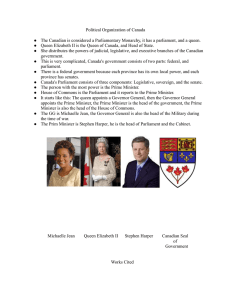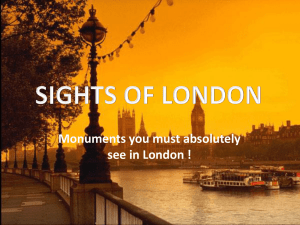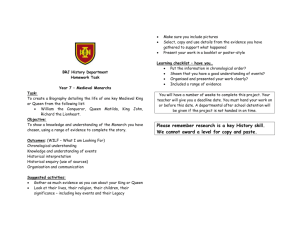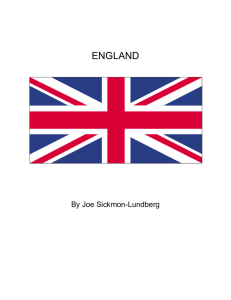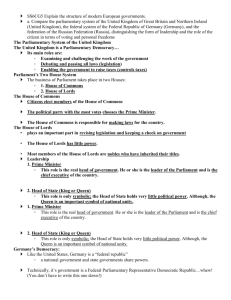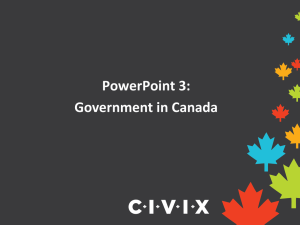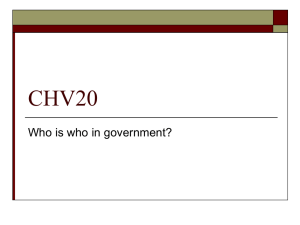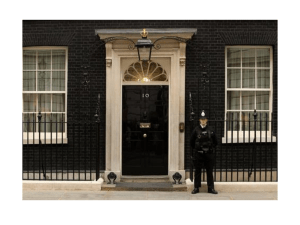The UK System of Government
advertisement
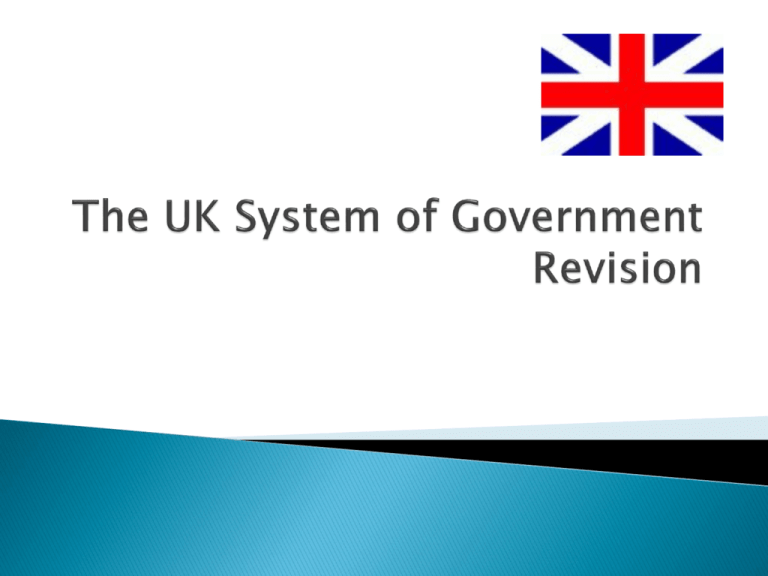
Legislature: supreme authority is Parliament The Executive consists of: the Government, local authorities and public corporations The Judiciary: the court system (hierarchy of courts) The Queen is head of State and an important symbol of national unity Head of the executive An integral part of the legislature Commander-in-chief of the armed forces The ‘supreme governor’ of the Church of England Britain is governed by Her Majesty’s Government in the name of the Queen The Queen’s role: summoning, proroguing (discontinuing until the next session without dissolution) and dissolving Parliament; giving Royal Assent to Bills passed by Parliament Appointment of important office holders As head of State, the Queen has the power to declare war and make peace, to recognise foreign states and governments, to conclude treaties The Queen – formal powers The House of Commons – the supreme legislative body The House of Lords To pass laws To provide, by voting for taxation, the means of carrying on the work of government To scrutinise government policy and administration To debate major issues of the day https://www.youtube.com/watch?v=Qs9B3FRXCA&index=1&list=PLj3mInRJqIekAQ6v ggN7IpCySnv0IIOyV 92 elected hereditary peers and peeresses Life peers The Archbishops and Bishops of the Church of England An elected body 650 MPs directly elected by voters General elections and by-elections Annual salary and travel allowances The chief officer is the Speaker elected by the Members A maximum duration of five years Dissolved by the Queen The life of a parliament is divided into sessions Each session lasts for one year (beginning and ending in October or November) – 160 ‘sitting days’ Opens with the Queen’s speech, ends by prorogation The Government consists of the ministers appointed by the Crown on the recommendation of the Prime Minister The Cabinet consists of a small group of the most important ministers selected by the Prime Minister Today the number is 23 The Cabinet determines, controls and integrates the policies of the government for submission to Parliament The Prime Minister is the head of the government and presides over meetings of the Cabinet He consults and advises the Monarch on government business, supervises and coordinates the work of various ministries and departments https://www.youtube.com/watch?v=AmGCwi QvhH0
